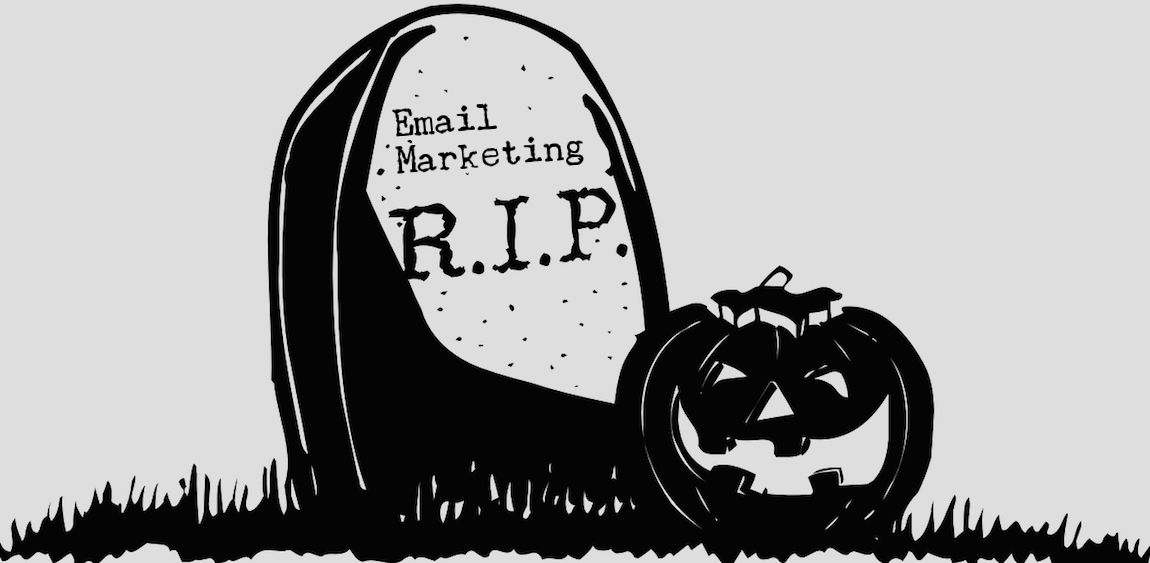B2B Monday Myth: Email Marketing Is Dead
by MGB2B
The Myth: Email Marketing Is Dead
The Truth: Email Is Very Much Alive – and You Should Be Using It
B2B marketers still rely heavily on email to reach their audiences. According to the annual B2B Content Marketing report by the Content Marketing Institute and Marketing Profs, Email Newsletters are tied with Social Media Content as the second most critical content marketing tactic in 2017. First place went to blogs.
There’s a reason for that. B2B marketers recognize that Email Newsletters are one of the most effective ways to distribute content like blog posts and white papers. They’re also a way to show your most engaged customers your latest video or share case studies with them.
Here Are a Few Tips to Make Sure Your Email Marketing Program Is Effective:
- Use Buyer Personas. Buyer personas are an important part of any content program, and your emails that deliver content should be written for specific personas. These will help define your segments as well.
- Segment Your Audiences. There are several ways to segment your audiences. The goal here is to make sure each one of your prospects is receiving a message that resonates, instead of one that falls flat.
- Test Your Emails. Test subject lines. Test lead story. Test headlines. Just not all at the same time. Testing will help you fine-tune your email program, and deliver the right messages to the right personas.
- Don’t Get Too Promotional. Your customers mostly want helpful information, not a product sell that hits them over the head. Give them the content they want, and you’ll drive up engagement.
These are just a few tips to help you take your email marketing to the next level. The key is to invest time into making email marketing run effectively. Instead of letting it die on the vine.
Continue Reading
Should You Send B2B Emails on the Weekend?
by MGB2B
Last week, we took a look at whether or not business prospects were worth pursuing over July 4th weekend. But what about any old weekend? Or how about during vacation?
Consumer Email vs. B2B Email
Before we get into the stats for B2B emails, it’s important to note that consumer emails are different from B2B emails. People are out shopping on the weekends, so it makes sense to sell merchandise direct to consumer on the weekends. But there is a general hesitation to send out B2B emails on weekends and holidays. Well maybe there shouldn’t be. Here’s why.
Looking at Email Behavior Differently
While there are tons of articles on when to send B2B emails based on average industry open rates, it’s also a good idea to look at general behavior. A recent study from ReachMail takes a closer look at when Americans open their work emails [INFOGRAPHIC at bottom of post]. This is a broader study than much of the industry-specific territory that’s been explored in the past. But it’s still important, because it gives an insight into the mindset of most working Americans.
The Three Most Interesting Highlights of the Study
- 75% of Americans Check Their Work Email on Weekends. I assumed that number would be fairly large, but not that large. The key is to get the right message to them while they’re in that half work/half play mode. Perhaps your weekend emails, while still insightful, can be a little more lighthearted than usual.
- 61% Check While They’re on Vacation. You may get a lot of “I’m sunning myself on the shores of Europe” auto-replies during the summer months. But apparently a lot of vacationers are checking their work email when they get back to the hotel at night. If your subject line and your content is compelling enough, they may just give it a read before they head out for dinner and drinks.
- Only 20% of High Earners ($105k per year) Will Not Open Work Email on Days Off. These are often your top decision makers. The ones you want to get to know your brand more than anyone else. And they’re ready to give your email read on Saturday or Sunday – if you can get their attention.
These are just a few interesting facts found by the study. Amongst others, there is a certain faction of people who like getting emails on their days off because it makes them feel important (ahem – 55% of millennials). You can read more interesting stats as well as how people are trying to combat their full work inboxes in ReachMail’s infographic below:
Continue Reading



